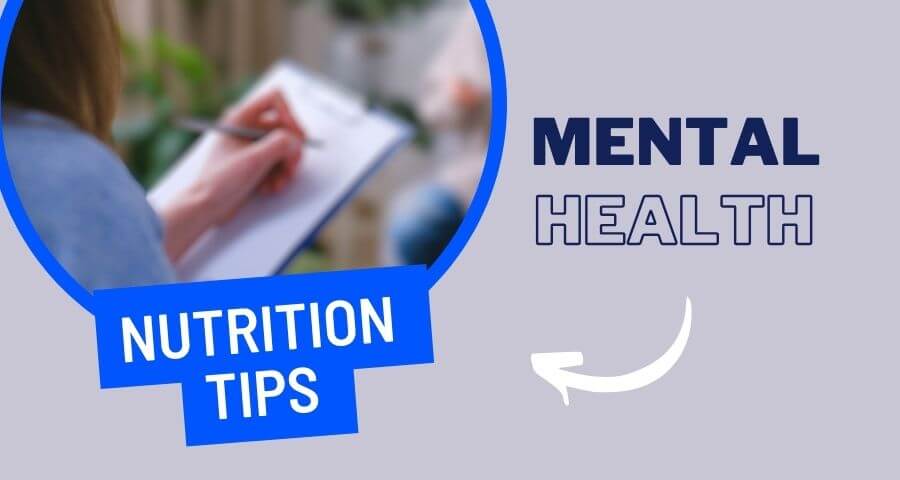These are the best dietary recommendations for improving mental health, with a focus on balanced meals, nutrient-rich foods, and mindful eating.
1. Embrace Whole Foods – Boost Mental Health
Shift your diet towards whole foods, focusing on fruits, vegetables, whole grains, lean proteins, and healthy fats. These foods are rich in essential nutrients like omega-3 fatty acids, antioxidants, and fiber, which play critical roles in brain health. For example, omega-3s, found in fatty fish, have been linked to reduced rates of depression and anxiety.
Whole foods are the cornerstone of a brain-boosting diet. Unlike processed foods, whole foods retain their natural fiber, vitamins, minerals, and other beneficial compounds. For mental health, the focus is on foods rich in antioxidants, such as berries and leafy greens, and omega-3 fatty acids, notably found in fatty fish like salmon. These nutrients help reduce oxidative stress and inflammation in the brain, which can exacerbate symptoms of depression and anxiety. Integrating a variety of whole foods into your daily meals ensures a wide spectrum of nutrients crucial for cognitive function and emotional regulation.
2. Prioritize Gut Health – Boost Mental Health
The gut-brain axis is a communication network linking your gastrointestinal tract and brain, crucial for mental wellness. To support gut health, incorporate probiotic-rich foods like yogurt, kefir, and fermented vegetables, and prebiotic foods like bananas, onions, and garlic to promote beneficial gut bacteria.
The gut-brain axis emphasizes how gut health affects mental health. A diverse microbiome can improve the gut-brain communication, influencing mood and cognitive health. Fermented foods introduce beneficial probiotics that enhance this diversity, while prebiotic foods provide the necessary fuel for these probiotics to thrive. Regular consumption of these foods can improve the absorption of mood-regulating nutrients and neurotransmitters, notably serotonin, which is primarily produced in the gut.
3. Hydration is Key – Boost Mental Health
Staying adequately hydrated is essential for maintaining optimal brain function and mood. Water is the best choice for hydration, but herbal teas can also be beneficial. They not only provide hydration but also contain antioxidants that support brain health.
Every cell in your body, including the cells in your brain, needs water to function. Dehydration can lead to cognitive decline, affecting concentration, memory, and mood. Aim for at least 8 cups of water a day, but adjust based on activity level and climate. Herbal teas, particularly those like chamomile or green tea, can offer additional benefits, such as antioxidants and a calming effect on the nervous system.
4. Reduce Sugar and Refined Carbs – Boost Mental health
High intake of sugar and refined carbohydrates can lead to fluctuations in blood sugar levels, impacting mood and energy. Limiting sugary snacks, beverages, and refined grains while opting for whole, unprocessed foods can help stabilize your mood.
Sugary foods and refined carbs can lead to a rollercoaster of blood sugar levels, with high spikes followed by rapid drops. This cycle can affect your mood, making you feel irritable and fatigued. By choosing complex carbs and reducing sugar intake, you can maintain more stable blood sugar levels, which supports a more balanced mood and sustained energy levels throughout the day.
5. Boost Your B Vitamin Intake – Boost Mental Health
B vitamins, particularly B12, B6, and folate, play significant roles in mood regulation and brain health. Ensure your diet includes plenty of sources of these vitamins, such as lean meat, eggs, legumes, leafy greens, and whole grains
B vitamins, including B12, B6, and folate, are pivotal for brain health, aiding in the production of neurotransmitters and the maintenance of brain structure. Deficiencies in these vitamins can lead to symptoms of depression and cognitive decline. Incorporating sources like spinach, beans, poultry, and whole grains can safeguard against these deficiencies, promoting a healthy mood and cognitive function.
6. Mindful Eating Practices
The way you eat matters just as much as what you eat. Mindful eating practices, focusing on enjoying your food and listening to your body’s hunger and fullness signals, can improve your relationship with food and support mental health.
Mindful eating focuses on being present and fully experiencing your food. It encourages you to slow down, savor each bite, and listen to your body’s hunger and fullness cues. This practice can help prevent overeating, reduce stress around food, and enhance the enjoyment of meals, contributing to a positive relationship with food and improved mental health.
7. Regular Meal Times
Eating at regular intervals helps maintain blood sugar levels, preventing mood swings and irritability. Try to establish a routine that includes three meals a day, with nutritious snacks in between if needed.
Consistent meal times help regulate your body’s internal clock, supporting better sleep patterns, energy levels, and mood stability. Skipping meals can lead to drops in blood sugar, resulting in mood swings and decreased energy. Planning meals and snacks at regular intervals ensures that your brain has a steady supply of nutrients for optimal function.
8. Limit Caffeine and Alcohol
While caffeine can enhance alertness, excessive consumption can lead to anxiety and sleep disturbances. Moderation is crucial, as is paying attention to how caffeine affects your body. Similarly, alcohol may seem like a temporary stress reliever, but it can significantly impair sleep quality and mood regulation over time. Limiting these substances can improve sleep quality, energy levels, and overall mental health.
Caffeine and alcohol are two substances that can have a profound impact on mental health, influencing everything from mood to sleep quality. While caffeine is often relied upon for its energizing effects, it can also lead to increased anxiety and sleep disturbances if consumed in large amounts or later in the day. On the other hand, alcohol, though it may initially seem like a stress reliever, can disrupt sleep cycles and mood regulation over time.
Finding Balance with Caffeine: To enjoy the benefits of caffeine without the drawbacks, consider limiting your intake to the morning hours and reducing the total amount consumed throughout the day. Switching to lower-caffeine beverages, such as green tea, in the afternoon can help mitigate any potential sleep disturbances.
Understanding Alcohol’s Impact: With alcohol, moderation is key. Regular consumption, especially in large quantities, can lead to a dependency that negatively affects mental health. Focus on social and relaxation techniques that don’t rely on alcohol, and consider alcohol-free days to support overall well-being.
9. Antioxidant-Rich Foods
Antioxidants protect the brain from oxidative stress, which can damage brain cells and contribute to mental health disorders. Brightly colored fruits and vegetables, nuts, seeds, and spices are excellent sources of antioxidants. Regular consumption of these foods can protect brain health, enhance mood, and support cognitive function.
Antioxidants play a crucial role in combating oxidative stress, a condition that can lead to cellular damage and has been linked with mental health disorders. Consuming a diet rich in antioxidant-packed foods can protect the brain and enhance cognitive function and mood.
Incorporating Antioxidants into Your Diet: Brightly colored fruits and vegetables are prime sources of antioxidants. Berries, leafy greens, beets, and bell peppers are just a few examples that can be easily integrated into meals. Additionally, nuts, seeds, and spices like turmeric also offer potent antioxidant benefits.
The Brain-Protective Effects of Antioxidants: Regular consumption of these foods supports brain health by neutralizing harmful free radicals and reducing inflammation, which can improve mood and ward off conditions like depression and anxiety.
10. Seek Professional Advice
Nutritional needs can be complex and vary widely from person to person. Consulting with a healthcare provider or a registered dietitian can provide personalized nutrition advice tailored to your mental health needs. This professional guidance can ensure that dietary changes complement other treatments and support your overall well-being.
Every individual’s nutritional needs and mental health challenges are unique, making personalized advice from healthcare professionals invaluable. A registered dietitian or nutritionist can tailor dietary recommendations to your specific needs, ensuring that you’re getting the most out of your nutritional interventions.
Collaborative Care for Mental Health: Nutrition is just one piece of the mental health puzzle. Working with healthcare providers can ensure that dietary changes complement other treatments, such as medication or therapy, providing a holistic approach to mental health care.
Finding the Right Professional: Look for professionals who have experience with mental health nutrition. They can offer guidance on balancing macronutrients, choosing foods that support brain health, and developing eating patterns that align with your mental health goals.
In summary, understanding the impact of caffeine and alcohol, prioritizing antioxidant-rich foods, and seeking personalized professional advice are crucial steps toward using nutrition to support mental health. By adopting these strategies, you can enhance your mood, cognitive function, and overall well-being in 2024 and beyond.
Incorporating these nutrition tips into your lifestyle in 2024 can significantly boost your mental health, improving mood, cognitive function, and overall well-being. Recall that over time, little adjustments can have a significant impact.








